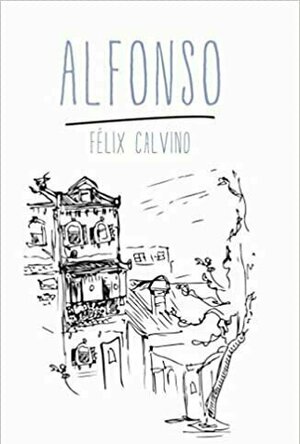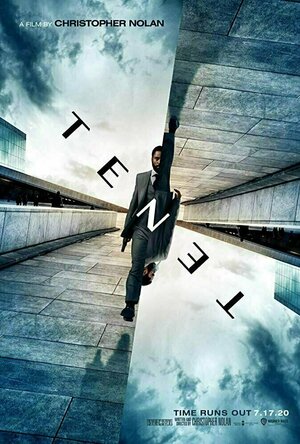
My Budget Book
Finance and Business
App
A housekeeping book cannot be easier. The surface is kept simple on purpose and provides all...

HippoRemote Pro ~ Wireless Keyboard, Mouse, Remote Control & Gamepad
Productivity and Utilities
App
WHAT IS HIPPOREMOTE? Control your computer with a wave of your hand or a flick of your finger!...

NetworkToolbox - Net security
Productivity and Utilities
App
*** THE ORIGINAL - NetworkToolbox *** ***USERS SAY ITS BETTER THAN NET ANALYZER and FING *** The...

Solar Alert: Protect your Life
Weather and Education
App
Solar Alert is the complete alert system whose purpose is to protect your life and warn you of the...

Nike+ Run Club
Health & Fitness and Sports
App
Your Perfect Running Partner – Nike Run Club Nike Run Club gives you everything you need to run...

Learning Games 4 Kids Toddlers
Games and Education
App
Funny Food consists of 17 various educational games for your children. Funny Food addresses various...

Elegantune Lite - The most Professional Chromatic Tuner for Guitar, Bass, Ukulele, Violin, Pipe and Piano
Music and Utilities
App
Accurate tuner that allows for change in concert tuning. Very effective for solfeggio tuning. --...

Snowboard Party Pro
Games and Sports
App
Snowboard Party brings the thrill of snowboarding to your mobile device! Get ready to ride the...
Ivana A. | Diary of Difference (1171 KP) rated Alfonso in Books
Aug 3, 2020
<a href="https://diaryofdifference.com/">Blog</a>; | <a href="https://www.facebook.com/diaryofdifference/">Facebook</a>; | <a href="https://twitter.com/DiaryDifference">Twitter</a>; | <a href="https://www.instagram.com/diaryofdifference/">Instagram</a>; | <a href="https://www.pinterest.co.uk/diaryofdifference/pins/">Pinterest</a>;
<img src="https://i0.wp.com/diaryofdifference.com/wp-content/uploads/2020/04/Book-Review-Banner-35.png?w=663&ssl=1"/>;
Alfonso is a young man that has moved to Australia to find a better life. Through his story, we follow his feelings and search for purpose.
As a person that moved to another country to find a better life, I can understand Alfonso and I can relate to what he feels and thinks. Coming into another country can be extremely difficult, leaving your family and friends behind, knowing those relationships will never be the same again. Coming to terms with the fact that you will always be a foreigner and have trouble with people accepting you. Trying to make friends and get inside inner circles of people that have been together since high-school – yeah, good luck with that…
Given how I can relate to Alfonso’s situation, and the similarities I have with this character, I thought I would love this book. But I didn’t. Even though I could relate with him, I couldn’t agree with his perceptions and beliefs. Alfonso was always trying to find a girl to spend his life with. Which is normal and expected. However, instead of being his true and authentic self, he desperately tries to be as “less foreign” as possible and adapt to his audience. This is something that seemed to push the potential women away. Not to mention that he was being quite creepy at times (following a girl’s bus schedule and being there before she departs etc.)
Living in a new environment shouldn’t mean that people should stop being who they are and stop believing in what they do, or respecting and practicing the customs from the country they were born and raised from.
All my friends know that in my country we boil and colour actual eggs for Easter, rather than eat chocolate ones. In our home, me and my boyfriend celebrate two Christmases; one on the 25th December, where he does everything by his tradition, and one on 7th January, where I prepare everything in my tradition. And it works. And it’s double the fun and jolly spirit.
I couldn’t relate with the fact that Alfonso feels that he needs to change and adapt, and leave behind his culture. I also couldn’t comprehend the fact that he needs to have a woman to be happy. He couldn’t seem to find happiness with just himself. And maybe, this is again, part of the tradition. In my country, marriages and forming a family are very important, and this may have influenced Alfonso’s behaviour perhaps.
The most upsetting part about this book was that the book ended, and everything remained the same. No earnings, no character development, no closure. Just a bad vibe of negativity, that was lingering in the air and stayed with me for days, like a bad taste in my mouth that you cannot wash with brushing your teeth.
I am not sure how to properly rate “Alfonso”. It was relatable, but conflicting. Very understandable, but unsatisfactory. And I will be honest, I read books that will either make me feel good, or teach me something new (or both), but this book didn’t provide either…
<a href="https://amzn.to/2Wi7amb">Wishlist</a>; | <a
<a href="https://diaryofdifference.com/">Blog</a>; | <a href="https://www.facebook.com/diaryofdifference/">Facebook</a>; | <a href="https://twitter.com/DiaryDifference">Twitter</a>; | <a href="https://www.instagram.com/diaryofdifference/">Instagram</a>; | <a href="https://www.pinterest.co.uk/diaryofdifference/pins/">Pinterest</a>;
Emma @ The Movies (1786 KP) rated Tenet (2020) in Movies
Aug 30, 2020
A CIA operative is brought into the fold of a secret operation to prevent a Russian arms dealer starting World War 3 with the most extraordinary ordinary weapons anyone has ever seen.
My initial reaction on Tenet as I walked out of the cinema was that I'd just watched the most predictable and confusing films I've ever seen... I really don't know how it manages to be both.
There are lots of faces in Tenet you'll recognise and all of them do a wonderful job of delivering their parts. I was particularly impressed with Kenneth Branagh and John David Washington, though the latter felt rather understated for an operative at that sort of level... but then that's probably just my opinion on something I only know about from action films. RPatz felt wrong, his delivery was good but my personal preference about his acting technique came out in full force.
When you have a lot of characters it can be difficult to follow everything but surprisingly that was the easiest thing to keep track of. I'm not sure if I was surprised about the way they were handled though. We delve heavily into Andrei and Kat with background and their life, and yes they're main characters but apart from them we don't seem to learn a great deal about anyone else. Is it because of the secretive nature of their situation? Perhaps, but it felt very off balance.
I want to talk about the predictability very briefly because it crosses over into my next point as well. Once you discover the reality behind everything it actually becomes very easy to spot things that are going to lead to something, and that partly because bit stick out like sore thumbs. A few pieces did elude me, but I'm putting that mainly down to the other distractions getting in the way.
So, those distractions came in two forms for me. Firstly, the sound. The music was good and the sound effects there helped with tension and atmosphere... but the volume... there's intense and then there's feeling your ribs rattle in your chest. I wondered if it was the screen's audio initially but there are so many other people saying it that it's definitely designed that way. At its most intense I found it difficult to follow anything, some times we got speech that was hidden by the sound intentionally but at least once the sound overtook some lines with no real purpose. Secondly, the action sequences. They are impressive, you can't deny that, but I found the necessary "transitions" distracting from the scenes which was a major drawback. Any momentum and excitement of the action was knocked straight out of me when I'd noticed that odd movement, it was rather deflating.
There are several good things about Tenet but I think I'd want to watch it twice more. I like going back to watch films to catch the little things I missed, but a second rewatch would almost be a first watch. I'm sure this won't go down well but perhaps it thinks it's rather clever when in fact it's just slightly too complicated to be enjoyable... there are several pieces that feel like they're from other things and in the end I don't think that enough comes together to be good enough to deal with the sound issues.
Originally posted on: https://emmaatthemovies.blogspot.com/2020/08/tenet-movie-review.html

